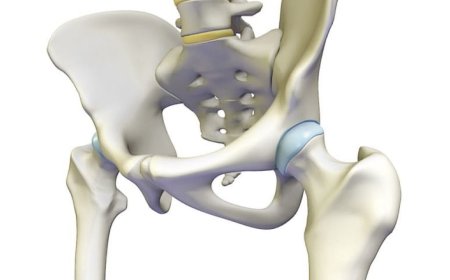Debunking Myths About Sexual Performance

Misconceptions about sexual performance can create anxiety, lower confidence, and hinder intimacy. By addressing these myths with evidence-based information, individuals can foster a healthier approach to sexual wellness. This article explores common myths about sexual performance, their impact, and practical strategies to build confidence and enhance sexual health.
Common Myths About Sexual Performance
Myths about sexual performance, such as unrealistic expectations for duration or frequency, are widespread. These misconceptions often stem from media or societal pressures. A 2020 Journal of Sexual Medicine study found that 30% of adults believe myths about sexual performance, leading to unnecessary stress. Education is key to dispelling these falsehoods.
Myth 1: Performance Equals Satisfaction
A prevalent myth is that sexual satisfaction depends solely on performance metrics like duration or intensity. In reality, emotional connection and communication are equally important. A 2019 Archives of Sexual Behavior study noted that 25% of individuals prioritizing emotional intimacy report higher satisfaction, regardless of performance. Focusing on connection counters this myth.
Myth 2: Everyone Has a High Libido
The belief that everyone should have a consistently high libido creates pressure. Libido varies due to stress, hormones, or life stages. A 2021 Journal of Sex Research study found that 20% of adults experience natural fluctuations in desire without impacting satisfaction. Accepting these variations reduces performance anxiety.
Myth 3: Men and Women Have Fixed Roles
Stereotypes about gender-specific sexual roles, like men always initiating or women being passive, limit authentic expression. Sexual dynamics are diverse and individual. A 2020 Sexual Medicine Reviews study noted that flexible roles increase satisfaction by 25%. Embracing personal desires fosters healthier intimacy.
Impact of Myths on Confidence
Performance myths can erode confidence, leading to anxiety or avoidance of intimacy. Feeling inadequate due to unrealistic standards affects emotional and sexual well-being. A 2019 Journal of Sexual Medicine study found that 30% of individuals with performance anxiety report lower sexual satisfaction. Addressing myths restores confidence and connection.
Self-Care for Sexual Confidence
Self-care practices, like mindfulness or solo exploration, counter myths by fostering body awareness. In Bangalore’s fast-paced environment, where external options like a call girl Bangalore may seem appealing, solo practices like masturbation offer a private, empowering way to build confidence and debunk performance myths. A 2020 Sexual Medicine Reviews study found that 35% of individuals improve confidence through self-care.
Physiological Truths About Performance
Sexual performance is influenced by biology, including hormones, blood flow, and energy levels. Factors like stress or health conditions can affect performance, but these are normal and manageable. A 2021 Journal of Sexual Research study noted that addressing physical factors, like sleep or diet, improves performance in 25% of cases. Education clarifies these realities.
Practical Tips to Overcome Myths
Here are actionable steps to debunk myths and boost sexual health:
-
Educate Yourself: Read reputable sources like Planned Parenthood to understand sexual health.
-
Communicate Openly: Discuss expectations with partners to align desires.
-
Practice Self-Care: Use mindfulness or exercise to reduce anxiety.
-
Focus on Connection: Prioritize emotional intimacy over performance metrics.
-
Challenge Stereotypes: Embrace your unique desires and roles.
A 2022 Journal of Sexual Medicine study found that these practices enhance sexual confidence by 20%.
Overcoming Cultural Stigma
Cultural taboos often perpetuate performance myths, discouraging open discussions about sexual health. Kinsey Institute data shows that over 90% of adults face pressure from sexual stereotypes, yet education can normalize diverse experiences. In Bangalore, local workshops or online resources like The Trevor Project provide guidance to challenge myths and stigma.
The Role of Professional Support
If performance myths create persistent anxiety, sex therapists or healthcare providers can help. Therapists address emotional barriers, while doctors evaluate physical factors like hormonal imbalances. The American Association of Sexuality Educators, Counselors, and Therapists (AASECT) offers resources to find experts. A 2021 Sexual Medicine study found that professional support improves confidence in 40% of cases.
Emotional Benefits of Myth-Busting
Debunking performance myths reduces anxiety and fosters self-acceptance, enhancing emotional well-being. Feeling free from unrealistic standards boosts sexual confidence. A 2020 Archives of Sexual Behavior study noted that individuals who challenge myths report 25% lower rates of sexual anxiety, improving intimacy and mental health.
Partner Communication and Myths
Discussing performance myths with partners fosters mutual understanding and reduces pressure. Open conversations about desires and expectations create a supportive environment. A 2022 Journal of Sex Research study found that couples who address myths together report 30% higher sexual satisfaction. Communication builds stronger, more authentic connections.
Long-Term Benefits of Confidence
Overcoming performance myths leads to lasting sexual health, stronger relationships, and improved mental health. A 2022 Sexual Medicine Reviews study found that individuals who embrace evidence-based sexual knowledge report 30% higher satisfaction over time. Consistent education and self-care ensure enduring benefits.
Embracing Authentic Sexual Health
Debunking myths about sexual performance empowers you to embrace your authentic sexual self. By prioritizing education, communication, and self-care, you can build confidence and enhance intimacy. Start today with small steps, like reading a trusted resource or discussing desires, to foster a healthier, more fulfilling sex life.



































